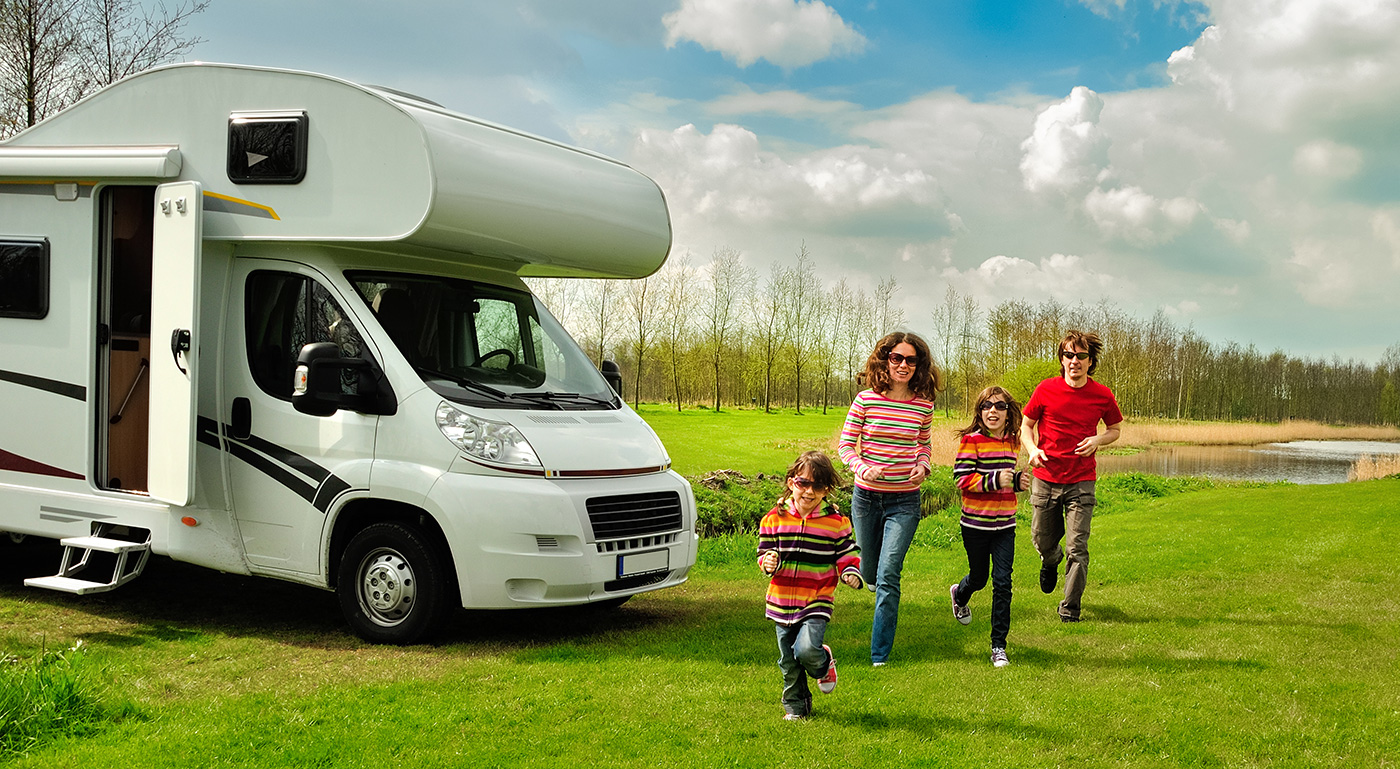More Generation Xers own RVs than Baby Boomers these days. Over the last few years, RV owners have grown to at least 11 million families. Of full-time RVers, only 43% are retired and only 11% don’t have children. And in between? Families. Some with as many as 5 or 7 children. How do they do it?! They plan, research, organize, and many join associations that provide strong community connections. Full-time RVers report that this lifestyle provides an education and family connection like little else.
Before you stock the 5th wheel or motorhome, a few shorter trips as a family will help you know what you will want to carry for which situation. Basics, of course, such as a first aid kit, games, toys for the toddlers, and standards such as clothing and supplies. But what about connecting to the Internet? Trial excursions will teach you about storage and daily life. The Internet can help you prepare for travel with children before you take off. RVers love to share their experience and community spirit.
Hitting the Books…or Not
Full-time RVers with families have a wide range of options when it comes to schooling. Domiciled RVers often take into account state education regulations among their considerations when deciding on location. The Homeschool Legal Defense Association lists state-by-state regulations.
That said, education can take the form of traditional “school at home,” in which parents take on the role of teacher. With this more “formal” choice, children have specific hours, books and workbooks, tests, and even a consistent “school room” set-up in the RV, echoing traditional classrooms.
The literature-based option uses literature in a style described by Charlotte M. Mason, author of the Home Education Series books. The emphasis is on books, nature, and art.
Unit-studies cover traditional school topics, from English to art, history, and science as they relate to a particular location. For example, at Yellowstone National Park, kids can study not only the geology and biology of the area, but also the history of the park, how parks are legally formed and protected, or use math and geometry to calculate miles or position, or astronomy to look at the stars, or the impact of tourism on the environment, or…. Well, the possibilities are limited only by your children’s curiosity.
Online schools are also available, similar to recent trends, and have a more traditional approach. A reliable Internet connection is key.
For RVers, “homeschooling” has become “roadschooling,” “worldschooling,” “roamschooling,” or “unschooling,” which has a specific philosophy. Unschooling is completely child directed, with parents acting as facilitators and information providers in day-by-day experiences. Some families start with unschooling and moved into more traditional, structured methods as kids enter adolescence.
With the growth of homeschooling, resources such as books and materials are easily available, some by subscription, some straight purchases, and some from libraries or free book sites, such as Project Gutenberg.
Many families use a combination of these approaches, which allows them to take advantage of their locations. As kids get older, their possible career interests may determine their educational path, even to the extent of taking university courses.
Keeping Up with the…Well, Everyone
Kids can keep up with their friends and family—and after a few months of RVing, their friends will come from everywhere—by video, email, even online gaming. Enjoying television and movies is part of the link to the world. While most campgrounds and RV parks have WiFi, boondocking changes Internet connection. An RV Satellite Internet Service exists for a monthly fee, but gives access from anywhere, campground or not. Best options for getting TV and information about satellite service as well as a cellular broadband plan are researchable.
Keeping Them Safe
As you cruise through the pines or the canyons, child safety—especially for the youngsters—is another aspect of RVing. Seat belt or child seat regulations again vary by state, but more important is parental peace of mind that the children are protected. Perhaps cabinet doors and loose items need to be secured, depending on your RV. Safety is job one when on the move.
Communities with Benefits
Social activities are an essential part of childhood, and fortunately, RVers have more choices than ever. Social media is rich in online opportunities and RV associations like Full-Time Families and https://www.fmca.com/about-fmca/Family Motor Coach Association (to name just two) can give advice, friendship, insider tips, and even sports, art, or dance classes. The modest membership fees pay back in more ways that mere dollars can. Association memberships carry a variety of discounts and services, such as medical assistance, as well.
An RV park can also provide a community and taking a break to let the kids run and give everyone a breather can be a lifesaver. Riverbound Custom Storage & RV Park fills the bill. Near Lake Havasu City, AZ, the park amenities shine as a home base, with dedicated wi-fi tower, laundry services, playground, pool, and café if you are staying short-term, and serious, climate-controlled storage or even a “man cave” for longer stays.


